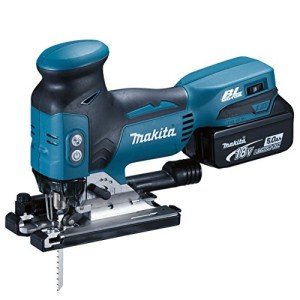The Best Miter Saws Tricks To Rewrite Your Life
페이지 정보

본문
Mastering the Miter Saw: An In-Depth Guide
Miter saws are important tools in both professional and DIY workshops, celebrated for their precision and adaptability. Whether it's for cutting molding, framing, or crafting custom furnishings, comprehending the functions, types, and best practices for utilizing a miter saw can significantly boost the quality of your projects. This blog post explores everything you need to know about miter saws, consisting of types, functions, suggestions, and frequently asked questions.
Understanding Miter Saws
A miter saw is a powerful tool created for making accurate crosscuts and miters in a workpiece. It includes a circular blade installed on a rotating arm, allowing users to reduce the spinning blade down onto the material and cut at different angles.
Types of Miter Saws
Miter Mitre Saws are available in numerous setups, each matched for different types of cuts and jobs:
| Type | Description | Suitable Uses |
|---|---|---|
| Requirement Miter Saw | Basic model for making angled cuts. | Simple furniture projects, framing. |
| Compound Miter Saw | Can tilt the blade for compound cuts (both miter and bevel). | Crown molding, picture frames. |
| Dual Compound Miter Saw | Offers both left and Best Mitre Saw UK bevel abilities. | More complex cuts, angles in both directions. |
| Sliding Miter Saw | Functions a sliding arm that allows the blade to take a trip forward. | Larger products, such as deck boards. |
| Cordless Miter Mitre Chop Saw | Battery-operated for portability. | Task websites or remote places without power. |
Secret Features to Consider
When picking a miter saw, think about the following features:
- Blade Size: Most typically is available in 10-inch and 12-inch sizes; bigger blades permit larger cuts.
- Cutting Capacity: The capability to cut through thicker materials is important for certain tasks.
- Bevel Adjustment: Dual-bevel saws provide greater flexibility by permitting cuts in both instructions.
- Dust Collection: An excellent dust collection system minimizes mess and improves visibility.
- Laser Guide: A laser guide can boost precision by projecting a line on the product where the cut will occur.
Tips for Using a Miter Saw
To achieve the best arise from a miter saw, here are some useful ideas:
- Always Wear Safety Gear: Safety glasses, hearing defense, and dust masks are necessary to secure yourself while utilizing the tool.
- Protect Your Workpiece: Use secures or a stable workbench to guarantee your product is firmly protected during cutting.
- Step Twice, Cut Once: Accurate measurements will conserve time and minimize waste.
- Use the Right Blade: Different blades are created for different products (wood, metal, etc). Selecting the appropriate blade ensures clean cuts.
- Keep the Blade Sharp: A dull blade can cause rough cuts and can be harmful. Frequently inspect and change blades as needed.
FAQs About Miter Saws
1. What is the distinction between a miter saw and a sliding miter saw?
A basic miter saw only allows the blade to pivot for angled cuts, while a sliding miter saw has a sliding mechanism that lets the user push the blade forward, allowing it to cut wider materials.
2. Can I utilize a miter saw for rip cuts?
Miter saws are primarily created for crosscuts; they are not suitable for rip cuts. If you need to carry out rip cuts, consider using a table saw.
3. How do I preserve my miter saw?
Routine maintenance includes cleaning the saw, examining the blade for wear, lubing moving parts, and guaranteeing the fences stay square. Constantly describe the manufacturer's manual for specific care instructions.
4. What material can I cut with a miter saw?
Miter saws can cut a range of products, consisting of softwood, wood, plywood, and even non-ferrous metals, depending on the blade utilized.
5. Is a laser guide truly necessary?
While not absolutely needed, a laser guide can considerably boost Precision Mitre Saw, assisting to envision the cut line and leading to more accurate cuts.
Selecting the Right Miter Saw for Your Needs
With numerous options readily available, it can appear intimidating to pick the right miter saw. Here are a few considerations that might assist:
Consider Your Projects
- For Occasional DIY Projects: A basic miter saw may be sufficient if your jobs are very little and straightforward.
- For Crown Molding or Advanced Carpentry: A compound or double compound miter saw will provide the flexibility needed for complex cuts.
- For Large Projects: If you're dealing with larger products, a sliding miter saw will be needed for the extra cutting capability.
Budget Considerations
Miter saws vary considerably in price. Here's a fundamental price range:
| Type | Cost Range |
|---|---|
| Standard Miter Saw | ₤ 100 - ₤ 300 |
| Compound Miter Saw | ₤ 200 - ₤ 500 |
| Double Compound Miter Saw | ₤ 300 - ₤ 600 |
| Sliding Miter Saw | ₤ 300 - ₤ 700 |
| Cordless Miter Saw | ₤ 200 - ₤ 400 |
A well-selected miter saw can be a vital tool for accomplishing exact cuts in woodworking projects. Understanding the types, features, and maintenance of miter saws will improve not just the quality of the cuts but also the pleasure of the woodworking experience. Whether you're a skilled carpenter or a weekend DIYer, investing time in finding out about and mastering your miter saw will result in more efficient and pleasurable woodworking jobs.
Equipped with this details, you can with confidence select the miter Mitre Saw Offers that Best Miter Saw meets your needs and raise your woodworking skills to new heights!

- 이전글시알리스필름, 시알리스 조치법 25.11.10
- 다음글The Ultimate Guide To French Door Installation Company 25.11.10
댓글목록
등록된 댓글이 없습니다.

